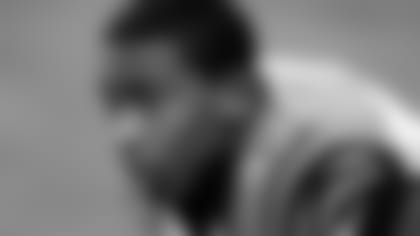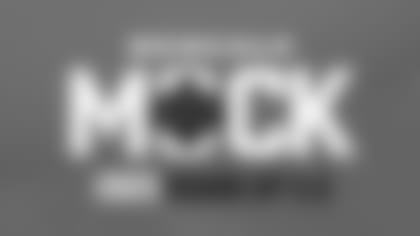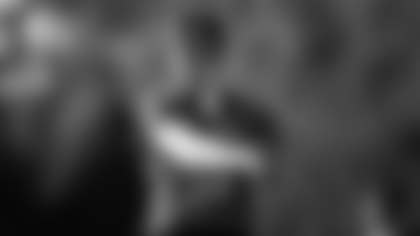Bengals safeties George Iloka (340) and Shawn Williams (161) have combined for more than 500 NFL tackles and after a team meeting with a band of officials Thursday night, they have no idea if they'll get thrown out of a game for the next one.
Iloka: "They came in, we asked questions, got answers and we still left with more questions."
Williams: "They don't understand how fast the game happens. There is no take back. No do over. Once it's done, it's done. I feel like it's going to get to a point where it's bad. You're thinking about other things rather than doing your job, what you're coached to do."
Iloka and Williams are just a pair of a legion of players, coaches, fans, media and, yes, officials, grappling with the NFL's new helmet rule that says, basically, it is a 15-yard penalty if:
"A player lowers his head and initiates and makes contact with his helmet against an opponent … lowering the head, but not including bracing for contact…..initiating contact of the helmet with any part of the opponent. Contact does not have to be to the neck or head area … lowering the head and initiating contact to an opponent's torso or other body part is also a foul … not limited to defensive players. It is all inclusive …"
Not only that, players can be ejected for:
"Lowering the helmet to establish a linear body posture prior to initiating contact with the helmet … a player delivering a blow while on an unobstructed path to the opponent … illegal helmet contact clearly avoidable and the player delivering the blow has other options."
Not only that, the helmet rule isn't subject to replay because it's a judgment call.
During his Friday briefing with the media that covers the Bengals, referee Carl Cheffers allowed, "Preseason is always a little bit of a proving grounds. I'm sure we'll throw some flags that maybe they don't want. Maybe we'll miss some stuff they want and we'll probably call a lot stuff they want as well. So we'll end up with a good library of plays that we can show the teams, 'This is what we want, this is what we don't want.' That will benefit us as well. As with any preseason, once we get to the regular season our intention would be we'll all be in lockstep as to what type of action we don't want and the type of action that is going to be legal. I would expect (a feeling-out process) to continue probably for the first couple of weeks of the preseason."
Iloka, a seventh-year veteran, and Williams, a sixth-year guy, are two of the Bengals' more thoughtful veterans. They don't talk just to hear themselves. They play the game cleanly at one of the game's most physical positions. Last year they each had one unnecessary roughness penalty. Williams had one face-mask penalty. Neither had an unsportsmanlike conduct penalty or a roughing the passer penalty. After Friday's workout on the Paul Brown Stadium practice fields, they held a mini tackling summit.
"There are two things that make me nervous and I pray we don't see," said Iloka after the Bengals watched the league's 11-minute video on new rules and points of emphasis. "If you really break down the film like we did yesterday, every play there's some type of helmet involved that by their rule that they've been given they should be throwing (a flag). When you see that on film as a player, already in your head you just want consistency. I think it's going to be hard to consistently enforce.
"And if they do enforce it, I just hope it doesn't change the outcome of a game. That it's not in a key moment of the game … If that happens, fans get upset. Like the catch rule. I'm all for it, but it's hard to be consistent. Especially the bang-bang plays, now you put the outcome of the game in the refs' hands. Fans want to see a good, hard-fought football game. Like my dad always says he just wants the best team to win. You put all these things in the refs' hands and put them in precarious positions and mistakes can happen or its just bang-bang, 50-50 and fans hate that as you saw last year."

There is extreme pressure on defenders. One of a safety's worst nightmares is having a receiver lined up for a legal hit and at the last instant the receiver adjusts and it's too late for the defender to adjust. Cheffers says it's too bad, but the onus is on the defense.
There are no breaks with this rule. Williams is all for banning the use of the crown of the helmet, but he thinks "lowering the helmet," is just too vague.
"We're taught to see what you hit," Williams said. "Regardless of what happens, you're going to hit with your shoulder pads. They're the biggest pads you have and they're meant for tackling. Look at how close my shoulder pads are to my helmet. If I'm taught to tackle with them, my head is going to make some contact … Don't categorize it as the defender lowers his helmet. Make sure you (emphasize) the crown … If the bottom of my facemask hits the top of your helmet, it's still making contact with the helmet. You've got to make sure you overemphasize the crown of the helmet. Not just the helmet."
They get it. The game should be as safe as possible. But they also want to know how to play the game they love.
"They've done things to make the game safer, like taking out unnecessary blind-side hits, things like that, the highlight reel kind of stuff that was away from the ball," Iloka said. "We just want consistency, but we also don't want it to just be a flag fest. We want it to be safe, but there's a degree of danger that comes with the profession that you know that you sign up for. Do your best as players as a league to limit those, but you'll never be able to take it away, period."







